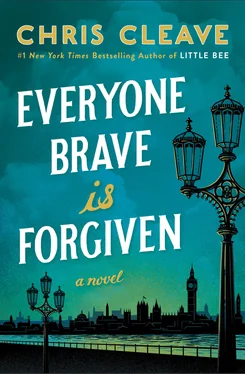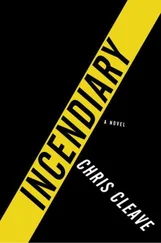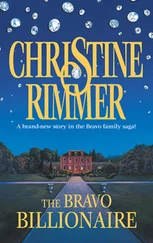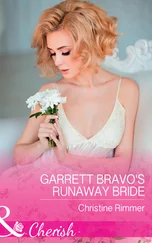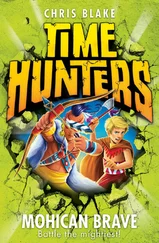EATS NNLDNN CEMTHGY. He had drawn his thumbs together, isolating each letter as Mary had shown him. He had made a one-letter prison between his thumbs and slid it across the first word: E… A… S… T. He had repeated the word to himself, then interrogated the whole sentence. EAST LONDON CEMETERY. Beside the location had been written a plot number for a mass grave.
The rain stopped. Water dripped from the chestnut leaves, the city inverted in each drop. Zachary came from under the tree and walked among the numbered plots at the margins of the graveyard. There was so much freshly dug earth. Weeds would take before grass.
His father’s plot was marked with a two-inch metal plaque on a wooden stave. The plot was twenty feet by ten, its boundary made with stakes and green twine. One didn’t know how many were buried there. Zachary stood for a while. Dandelions covered the plot. There was a smell of wet earth.
“I’m sorry it took me so long,” he said.
In the footlights his father had addressed the audience at the close of every show: For those who couldn’t be with us tonight .
Zachary smiled, and flicked away his cigarette. He could start now. He would try south, across the Thames. There was a rumor that his kind was trying there. Flat rubble waited for them on the far bank of the river. Rubble to build on was no one’s business but their own. It did not catch the light, having no promise but what they brought with them.
He tried not to be afraid. London was a lightening of the sky. It was the bloody last hour of a milk tooth. It was a city dying to begin.
HILDA POURED TEA, PROPPED an elbow on her kitchen table, and read Simonson’s note again.
It was brave of you to include your photograph in the last letter. What a terrible mess — you must be devastated. That pompadour will have to go. As for the scars, I do not see what you are fretting about — one hardly notices them. In any case, it is only your face — this is why we were all issued with two.
She held the aerogramme to her cheek. It smelled of smoke and mail sacks. Through the open window, pigeons were cooing in that emollient, slightly medical way they had, as if it were a purgative for something nonspecific.
Having no photograph to hand, Simonson had drawn her a self-portrait in blue ink. He had made himself scrawny and bearded, more castaway than soldier. In his cartoon he wore sergeant’s stripes and bawled at men on parade. Hilda thought it adorable that he was so touchy about his demotion. She resolved to sew him various insignia, denoting ranks of her invention, which she would include in subsequent letters.
You write that it was clever of Alistair to induce the two of us to correspond, but I do not think him bright. It will have been no more than simple visual association on his part, since you are rather pretty and I am strikingly handsome. I should also like to correct any lies with which he might have supplied you. He may claim that I correspond with several girls, while in fact I only have ink for you.
Hilda smiled. Well, and so what if the man wrote around? She thought his letters reckless and sweet, as unworn as London in May.
Through the window the traffic rumbled. On the street, beneath the barrage balloons, couples finished each other’s thoughts again. Strapped shoes had been brought out for the season, hems raised by an inch and a half. The capital had remembered itself. She closed her eyes and breathed in the smell of his letter. How good it would be to fall in love — how perfectly, anciently new.
“YES BUT I’M LIKE a piano,” said Hilda. “I need men to move me.”
“And Simonson?” said Mary.
“I like the convenience of mail-order.”
They were at the Ritz, at a table where they could be seen from the door. Mary spread her hands on the pristine tablecloth. “But there’s always some problem with the delivery, isn’t there? Oh, why do I feel so anxious?”
“Insufficient drink,” said Hilda, snapping her fingers the instant her diagnosis was made. Two more gin fizzes appeared.
“Thank you for coming out,” said Mary. “I know it’s silly, but I couldn’t wait for him on my own.”
She brushed away ash where it had missed the ashtray, and moved the flowers in their vase to catch the light from the chandelier at the center of the room.
“Did he say when he would come?” said Hilda.
“Straight from Waterloo, off the nine o’clock.”
“Any minute, then. Do stop fussing, or I shall have the waiter etherize you.”
“I just want everything to be perfect when he gets here. After all this, I couldn’t bear for him to be put off by a little thing.”
“He didn’t mind when I told him you were a wreck. I shouldn’t think he’ll mind ash on the tablecloth.”
“You’re quite right,” said Mary, thinking that Hilda was quite wrong. The heart was a bicameral thing, both stoical and skittish. Who was to say that it mightn’t endure the years of separation and the abrupt reversals of fate, only to be repulsed by a misaligned vase, by a lipsticked tooth, by a hundredth of an ounce of ash?
“I’ve been meaning to ask,” said Hilda. “Where did you get that hat?”
“White’s, in Burlington Arcade. Do you like it?”
“I actually think I must eat it.”
“Thank you,” said Mary. “The feathers are real phoenix, you know.”
“And your dress is just right. Any more décolletage and you’d look rather as if you might; any less and you’d look as if you might rather not.”
When Hilda was on form she was hard to resist — and in any case it was fun to be back at the Ritz, which seemed to have excused Mary sooner than her family had. Here they honored one’s name in that generous way the Ritz knew, which was to remember it only when one was sober. Seated at the grand, the pianist played some Schumann.
Mary began to believe that everything really might be all right. Since Alistair’s exoneration they had exchanged letters almost weekly while he waited for a convoy home. Her letters were full of apology, his of understanding. She had confessed to passing up the chance to have her father write a letter that might have reduced his sentence. But if you hadn’t your ideals, he’d written, you’d be no different from the others, sipping champagne at Black’s . For his part Alistair found it hard to believe that she did not despise him for jumping the evacuation queue. But perhaps this was love, at the second time of asking: the understanding that each would not mind what had been necessary locally.
In the light of the chandelier, men in lounge suits converged on their table in oblique trajectories described by the pull of desire and the push of manners. They noticed Hilda’s face when they were already too close, and swerved. Some had prepared opening gambits that they swallowed. Others made attempts of varying skill to demonstrate that they had only been on their way to the men’s room.
Hilda looked into a third gin. “This will be my whole life, you know.”
“You mustn’t think that.”
“It’s hard to stay gay, though. Do they imagine I’m cut all the way through?”
Mary was drunk enough to touch Hilda’s scars. “What’s this on them? Healing cream?”
“It’s foundation, damn you.”
Mary drew her hand back. “I’m sorry.”
“Not that it does any good. I could wear a carnival mask and the scars would still show through.”
“And so? Damn these spivs and idlers. A million better men will come home from the war, and they shan’t want a girl who sat it out. When Simonson looks at your scars, he’ll see someone.”
Читать дальше
